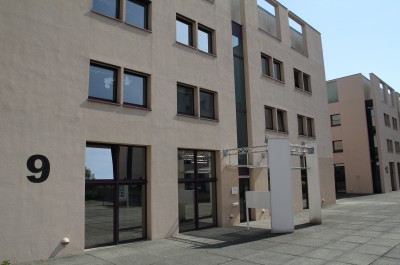| Project period |
01.10.2021-31.10.2023
| Project staff |
| Cooperations |
University of Hildesheim, Institute of Psychology
| Project description |
The coronavirus pandemic has posed some particular challenges for the justice system when considering its social responsibility (i.e., the rehabilitation of offenders and the protection of the public from further criminal offences, Schlebusch, 2020). The project is concerned with examining (1.) in which way, and (2.) with what consequences correctional facilities are overcoming these challenges. The key questions thus refer to the implementation and the proportionality of protective measures taken against infections.
The goal of the project is to examine the impact of the COVID-19 pandemic (measures and their implementation, pandemic-related changes and developments) on the prison system.
There is a particular focus on the tensions between health care measures for the correctional workers and the inmates on the one hand, and the resulting restrictions on the already severely limited freedom the inmates possess on the other (Dutheil et al., 2020; Feest, 2020; Hefendehl, 2020; Keppler & Stöver, 2020; Schlebusch, 2020; Shepher & Spivak, 2020; Steinböck, 2020; Urwyler, Noll & Rossegger, 2020; WHO, 2020).
According to the information available to date, pandemic-related restrictions affect almost all essential areas of the penal system, namely intramural freedom of movement, potential contact with other prisoners, visits from family and friends, work and training opportunities, leisure time and the practice of religion, as well as approvals relating to the relaxation of detention conditions and pre-release preparations (Dünkel & Morgen-stern, 2020; Hefendehl, 2020; Schaerff, 2021; Schlebusch, 2020; WHO, 2020).
All of this has consequences for the mental and physical health of the inmates, as well as for their post-release social reintegration. These issues remain true even when considering the prison system’s provision of compensatory measures, such as the issuing of mobile phones, allowing conversations with relatives via Skype, or holding court hearings using video conference systems (Dutheil et al., 2020; Hewson et al., 2020; Shepherd & Spivak, 2020; WHO, 2020).
The survey methods of the research project include questionnaires and interviews, which will be conducted in correctional facilities across various German states (including Lower Saxony, Berlin, Brandenburg, Bavaria, …). In order to cover the broadest spectrum possible, the project includes both open and closed penal and juvenile detention centres, male and female prisoners, as well as departments of social therapy and preventive detention.
[/su_spoiler]
